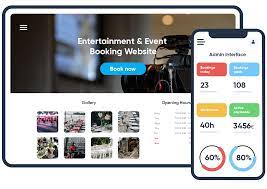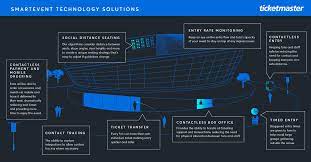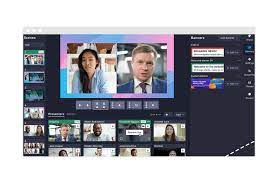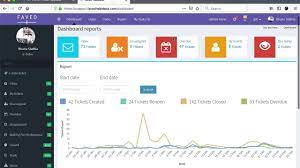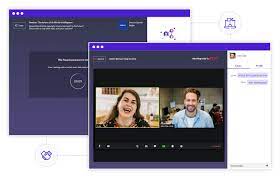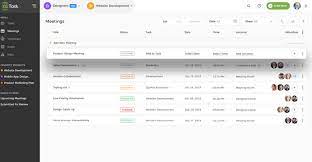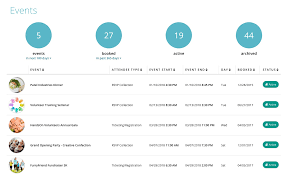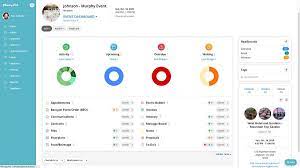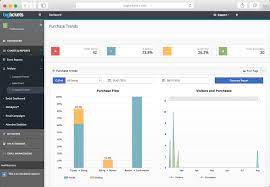Event Ticket Management Software: Streamlining Your Event Operations
Organizing and managing events can be a complex task, especially when it comes to handling ticket sales and attendee registration. That’s where event ticket management software comes into play. This innovative technology has revolutionized the way events are organized, making the process more efficient and seamless for both event organizers and attendees.
Event ticket management software offers a wide range of features that simplify every aspect of ticketing and registration. Let’s explore some of the key benefits:
- Online Ticket Sales: With ticket management software, event organizers can easily create an online platform where attendees can purchase tickets at their convenience. This eliminates the need for physical ticket outlets or manual registration processes, saving time and resources.
- Customizable Ticketing Options: Event organizers have the flexibility to customize various aspects of ticketing, such as pricing tiers, early bird discounts, promotional codes, and seat selection. This allows for personalized experiences tailored to different attendee preferences.
- Real-Time Reporting and Analytics: Comprehensive reporting tools provide valuable insights into ticket sales, attendance rates, revenue generation, and other key metrics. Organizers can track their event’s performance in real-time and make data-driven decisions to optimize future events.
- Attendee Management: Efficiently manage attendee information with ease using event ticket management software. Collect vital details during the registration process, such as contact information or dietary preferences. This information can be securely stored and accessed when needed.
- Seamless Check-In Process: Gone are the days of long queues at event entrances! Ticket management software enables quick check-ins through various methods like QR codes or mobile tickets. Attendees simply present their digital tickets on their smartphones or printed copies for hassle-free entry.
- Integration Capabilities: Most event ticket management software seamlessly integrates with other platforms like CRM systems or email marketing tools. This allows organizers to streamline communication efforts with attendees before, during, and after the event, enhancing overall engagement.
- Enhanced Security: Ticket fraud and counterfeiting can be a significant concern for event organizers. Advanced security features, such as unique barcodes or RFID technology, ensure that tickets are genuine and minimize the risk of unauthorized entry.
- Customer Support: Reliable event ticket management software providers offer dedicated customer support to assist organizers throughout the event planning process. From initial setup to troubleshooting, their expertise ensures a smooth experience for both organizers and attendees.
In conclusion, event ticket management software has transformed the way events are organized and executed. Its comprehensive features streamline ticket sales, attendee registration, and data management while providing valuable insights into event performance. By leveraging this technology, event organizers can focus on delivering exceptional experiences while leaving the complexities of ticketing to efficient software solutions.
7 Benefits of Event Ticket Management Software: Streamlined Registration, Increased Security, Improved Customer Experience, Real-Time Analytics, Automated Marketing Campaigns, Reduced Costs, Enhanced Scalability
- Streamlined registration process
- Increased security
- Improved customer experience
- Real-time analytics
- Automated marketing campaigns
- Reduced costs
- Enhanced scalability
5 Cons of Event Ticket Management Software: Exploring Cost, Complexity, Security Concerns, Limited Customization Options, and Compatibility Issues
- Cost
- Complexity
- Security Concerns
- Limited Customization Options
- Compatibility Issues
Streamlined registration process
Streamlined Registration Process: Simplifying Ticket Purchases and Management
Event ticket management software offers a game-changing advantage: a streamlined registration process. This powerful feature benefits both event organizers and attendees, making ticket purchasing and management a breeze.
For attendees, the convenience of online ticket sales is unparalleled. With just a few clicks, they can browse event details, select their desired tickets, and make secure online payments. No more waiting in long queues or dealing with the hassle of physical ticket outlets. The ability to purchase tickets anytime, anywhere adds an extra layer of convenience for busy individuals.
On the organizer’s side, event ticket management software simplifies the entire registration process. Creating an online platform where attendees can easily purchase tickets eliminates the need for manual data entry or paperwork. Organizers can customize various ticketing options such as pricing tiers, discounts, and seat selection to cater to different attendee preferences.
The software also provides organizers with valuable insights through real-time reporting and analytics. They can track ticket sales, monitor attendance rates, and analyze revenue generation all in one centralized dashboard. These insights empower organizers to make data-driven decisions for marketing strategies or future event planning.
Moreover, attendee management becomes effortless with event ticket management software. Collecting vital information during the registration process allows organizers to have a comprehensive database of attendee details readily available when needed. This not only saves time but also enables personalized communication before and after the event.
Additionally, streamlining the check-in process is another notable benefit of this software. Attendees can present their digital tickets on their smartphones or printed copies at the event entrance through QR codes or other scanning methods. This eliminates long queues and ensures a smooth entry experience for everyone involved.
In conclusion, event ticket management software’s streamlined registration process revolutionizes how attendees purchase tickets while providing organizers with efficient tools for managing registrations seamlessly. By harnessing this technology’s capabilities, events become more accessible to attendees while reducing administrative burdens for organizers – a win-win situation for all.
Increased security
Enhanced Security: Safeguarding Your Event with Ticket Management Software
Ensuring the security of an event is paramount for organizers, and event ticket management software offers a powerful solution to address this concern. With its advanced features like fraud detection and access control, this technology significantly enhances event security measures.
One of the key advantages of event ticket management software is its ability to detect and prevent ticket fraud. Counterfeit tickets can be a major headache for organizers, leading to revenue loss and potential disruptions during the event. However, with robust fraud detection mechanisms in place, such as unique barcodes or RFID technology, organizers can easily identify genuine tickets and minimize the risk of unauthorized entry.
Access control is another critical aspect that ticket management software efficiently handles. By implementing secure entry systems like scanning QR codes or mobile tickets, event organizers can ensure that only valid ticket holders gain access to the venue. This eliminates the possibility of unauthorized individuals sneaking into restricted areas or overcrowding at popular events.
Furthermore, ticket management software allows organizers to monitor attendance in real-time. They can track the number of attendees entering and exiting various sections or sessions within their events. This information helps maintain crowd control and ensures compliance with safety regulations.
In addition to these security measures, event ticket management software also provides organizers with valuable data insights. By analyzing attendance patterns and identifying any suspicious activity, organizers can take proactive measures to prevent potential security risks before they escalate.
Ultimately, increased security offered by event ticket management software not only protects attendees but also safeguards the reputation of the event itself. Organizers can have peace of mind knowing that their efforts to maintain a secure environment are supported by cutting-edge technology.
In today’s world where security concerns are prevalent, leveraging event ticket management software is a wise choice for any organizer who prioritizes safety. By utilizing fraud detection mechanisms and access controls, this technology empowers organizers to create a secure environment that attendees can confidently enjoy without compromising their safety or the success of the event.
Improved customer experience
Improved Customer Experience: Enhancing Event Ticketing with Technology
In the digital age, customer experience is paramount. Event ticket management software has emerged as a game-changer in this regard, revolutionizing the way customers interact with event organizers and purchase tickets. One significant advantage of this technology is its ability to improve the overall customer experience.
Gone are the days of waiting in long lines or dealing with cumbersome paper tickets. With event ticketing software, customers can effortlessly find and purchase tickets online, anytime and anywhere. This convenience eliminates the need for physical ticket outlets and empowers attendees to secure their spots with just a few clicks.
Moreover, event ticket management software keeps customers informed about their order status and provides real-time updates on any changes in event details. Whether there’s a venue change or a schedule adjustment, attendees receive timely notifications via email or mobile alerts. This proactive communication ensures that customers stay well-informed and can plan accordingly.
The software also offers personalized experiences by allowing customers to select their preferred seating options during the ticket purchasing process. By providing interactive seat maps or virtual tours of venues, attendees can make informed decisions based on their preferences, resulting in a more tailored and enjoyable event experience.
Additionally, event ticketing software often integrates with other platforms like social media or email marketing tools. This integration enables organizers to engage with customers even before they attend the event. From promotional campaigns to exclusive discounts, organizers can nurture relationships with attendees and create anticipation leading up to the event day.
With improved customer experience at its core, event ticket management software enhances customer satisfaction and loyalty. By simplifying the ticket purchasing process, providing timely updates, offering personalized options, and fostering pre-event engagement, this technology ensures that attendees feel valued and connected throughout their journey.
In conclusion, event ticket management software has transformed how customers interact with events by significantly improving their overall experience. From easy online ticket purchases to real-time updates on order status and personalized options, this technology caters to the needs and expectations of modern-day attendees. By embracing these advancements, event organizers can create memorable experiences that leave a lasting positive impression on their customers.
Real-time analytics
Real-time Analytics: Unleashing the Power of Event Ticket Management Software
Event ticket management software offers a multitude of benefits to event organizers, and one standout advantage is the ability to access real-time analytics. This powerful feature provides organizers with valuable insights into attendee behavior, ticket sales, and event performance, enabling them to make data-driven decisions on-the-go.
With real-time analytics, organizers can gain a deeper understanding of their audience. They can track who is attending their events, including demographic information such as age, location, and interests. This knowledge allows for targeted marketing efforts and the creation of personalized experiences that resonate with attendees.
Furthermore, event ticketing software provides details on the types of tickets being purchased. Organizers can identify which ticket tiers or packages are most popular among attendees, helping them optimize pricing strategies and maximize revenue generation. They can also identify trends in ticket sales over time, allowing for proactive adjustments to marketing campaigns or event capacity planning.
Real-time analytics also empower organizers to monitor attendance rates throughout the event registration period. By tracking ticket sales in real-time, they can gauge interest levels and make informed decisions about event logistics such as venue selection or additional promotional efforts.
Additionally, this feature enables organizers to measure the success of their marketing campaigns instantly. They can assess which channels are driving ticket sales and adjust their strategies accordingly. By identifying effective marketing tactics early on, organizers can optimize their efforts and allocate resources more efficiently.
The ability to access real-time analytics has a direct impact on event success. Organizers can quickly identify areas that require attention or improvement during the planning process or even during the event itself. For instance, if a particular ticket category is not selling well, they can take immediate action by offering discounts or launching targeted promotions to boost sales.
In conclusion, real-time analytics provided by event ticket management software empower organizers with invaluable insights into attendee behavior and event performance. With this information at their fingertips, they can make data-driven decisions, optimize marketing strategies, and enhance the overall event experience. By leveraging the power of real-time analytics, event organizers can stay ahead of the curve and deliver exceptional events that leave a lasting impact.
Automated marketing campaigns
Automated Marketing Campaigns: Boosting Event Success with Event Ticket Management Software
When it comes to promoting an event, effective marketing campaigns are crucial for driving ticket sales and creating buzz. Event ticket management software offers a powerful advantage by enabling organizers to create automated marketing campaigns that target specific audiences or promote relevant products and services related to the event.
With event ticket management software, organizers can leverage automation tools to streamline their marketing efforts. Here’s how this pro can benefit your event:
- Targeted Audience Engagement: By utilizing automated marketing campaigns, organizers can segment their audience based on various criteria such as demographics, past attendance, or interests. This level of segmentation allows for personalized messaging that resonates with each group, increasing the chances of converting potential attendees into ticket buyers.
- Timely and Consistent Communication: Event ticket management software allows organizers to schedule automated email campaigns, social media posts, or SMS messages in advance. This ensures that attendees receive timely reminders about upcoming events, early bird offers, or exclusive promotions without manual intervention. Consistent communication helps maintain engagement throughout the event lifecycle.
- Upselling Opportunities: Automated campaigns provide an excellent opportunity for organizers to promote additional products or services related to the event. For instance, if you’re hosting a music festival, you can set up automated campaigns that highlight merchandise sales or VIP upgrades. This not only increases revenue but also enhances the overall attendee experience.
- Post-Event Follow-Up: The relationship with attendees does not end when the event concludes. With event ticket management software, organizers can automate post-event follow-up campaigns to gather feedback, express gratitude for attending, and even offer early access to future events. This helps build long-term relationships and encourages repeat attendance.
- Tracking and Analytics: Automated marketing campaigns within event ticket management software provide valuable insights into campaign performance metrics like open rates, click-through rates, and conversion rates. These analytics enable organizers to assess the effectiveness of their marketing efforts and make data-driven decisions for future events.
By harnessing the power of automated marketing campaigns, event ticket management software empowers organizers to engage with their target audience more efficiently and effectively. It streamlines communication, maximizes ticket sales, and nurtures attendee relationships throughout the event journey. With this pro, event organizers can focus on delivering exceptional experiences while letting the software handle the intricacies of targeted marketing campaigns.
Reduced costs
Reduced Costs: The Efficiency Boost of Event Ticket Management Software
Event organizers are always on the lookout for ways to streamline their operations and cut down on costs. One significant advantage of event ticket management software is its ability to reduce expenses through automation and improved efficiency.
By automating processes like registration and payment processing, event ticketing software eliminates the need for manual data entry and reduces the risk of human error. This not only saves time but also ensures accuracy in handling attendee information. Organizers can bid farewell to the days of deciphering illegible handwriting or dealing with misplaced registration forms.
Moreover, event ticket management software allows organizers to handle customer inquiries quickly and efficiently. With a centralized system in place, customer support teams can access attendee information promptly and provide timely assistance. This reduces the need for additional staff resources or outsourcing customer service, resulting in cost savings.
Additionally, by offering online ticket sales, organizers can eliminate the expenses associated with physical ticket outlets or printing and distributing tickets. Attendees can conveniently purchase tickets from the comfort of their homes, reducing overhead costs while increasing convenience for both parties.
The financial benefits extend beyond just ticket sales. Event ticket management software often integrates with payment gateways, allowing for secure online transactions without the need for third-party services. This helps organizers avoid additional transaction fees or commissions associated with external payment processors.
Furthermore, streamlined processes provided by event ticketing software free up valuable time for organizers to focus on other aspects of event planning and marketing strategies. By reducing administrative tasks and simplifying workflows, more resources can be allocated towards enhancing the overall event experience.
In conclusion, event ticket management software offers a significant advantage in terms of reduced costs. By automating processes like registration and payment processing, organizers save time and money while ensuring accuracy in data entry. Additionally, efficient handling of customer inquiries leads to enhanced customer satisfaction without requiring extra staffing resources. Embracing this technology not only improves operational efficiency but also contributes to the financial success of events.
Enhanced scalability
Enhanced Scalability: Growing Events Made Easy with Event Ticket Management Software
As event organizers, one of our primary goals is to see our events flourish and attract larger audiences. However, with growth comes the challenge of managing increased demand while maintaining the same level of quality service. This is where event ticket management software proves invaluable, offering an enhanced scalability feature that effortlessly adapts to the evolving needs of organizers.
Event ticket management software provides a scalable solution that grows alongside the business needs of organizers. Whether you’re planning a small conference or a large-scale festival, this software can handle the increasing demand for ticket sales and registrations without compromising on efficiency or customer experience.
With traditional methods, scaling up an event often meant hiring additional staff, investing in more resources, and grappling with logistical challenges. However, event ticket management software simplifies this process by automating various tasks and providing a centralized platform to manage all aspects of ticketing.
As your event grows in size, the software seamlessly accommodates increased traffic and transactions. It can handle high volumes of ticket sales without any hiccups or slowdowns. This not only saves time but also ensures a smooth experience for both organizers and attendees.
Moreover, event ticket management software offers flexibility in terms of customization. You can easily adjust pricing tiers, seating arrangements, or registration limits as your event expands. This adaptability allows you to cater to different attendee preferences while maintaining control over your event’s growth trajectory.
Additionally, scalability extends beyond just ticket sales. The software also supports other essential aspects such as attendee management and communication efforts. As your event gains popularity and attracts more participants, the software efficiently manages attendee information and facilitates effective communication through integrated tools like email marketing or CRM systems.
In conclusion, enhanced scalability is a significant advantage offered by event ticket management software. It eliminates the need for manual handling of increased demand by providing an automated and scalable solution that grows alongside your business needs as an organizer. With this software in place, you can confidently focus on expanding your event while ensuring a seamless experience for both yourself and your attendees.
Cost
Cost: A Consideration for Event Ticket Management Software
While event ticket management software offers numerous benefits, it’s important to consider the potential drawbacks as well. One significant concern is the cost associated with purchasing and maintaining such software, particularly for smaller organizations with limited budgets.
Event ticket management software often comes with a price tag that includes licensing fees, subscription plans, or transactional charges. These costs can vary depending on the features and level of customization required. For smaller organizations or non-profit events operating on tight budgets, these expenses may pose a challenge.
In addition to the initial purchase cost, there are ongoing maintenance fees and potential upgrade expenses to consider. As technology evolves, software providers continually release updates to enhance functionality and security. Staying up-to-date with these updates may require additional investments.
However, it’s important to note that while cost can be a con, it is not necessarily prohibitive. Many event ticket management software providers offer tiered pricing plans that cater to different organizational sizes and needs. It’s worth exploring various options and considering the return on investment in terms of time saved, improved efficiency, and enhanced attendee experiences.
Moreover, some software providers offer free or discounted packages for non-profit organizations or events with a charitable purpose. Exploring such options can help mitigate the financial burden for those working within limited resources.
Organizations should also evaluate whether they truly need all the advanced features offered by expensive ticket management software. In some cases, simpler and more affordable solutions may suffice for smaller-scale events or those with straightforward ticketing requirements.
Additionally, it’s crucial to consider alternative options such as outsourcing ticketing services to specialized companies that handle the entire process on behalf of event organizers. While this may entail additional costs as well, it eliminates the need for investing in dedicated software and related maintenance expenses.
In conclusion, while cost is indeed a con when it comes to event ticket management software, careful consideration of budgetary constraints and exploration of various pricing options can help organizations find a solution that aligns with their financial capabilities. It’s essential to weigh the benefits against the expenses and choose a ticket management approach that best suits the organization’s specific needs and resources.
Complexity
Complexity: Navigating the Learning Curve of Event Ticket Management Software
While event ticket management software offers numerous advantages, it’s important to acknowledge that it can also come with a learning curve. The complexity of the software may require some training or support from the vendor in order to fully maximize its potential.
One of the main challenges that event organizers may face is understanding and utilizing all the features and functionalities of the software. Depending on the complexity of the platform, it may take time and effort to become proficient in its operation. This can be particularly true for those who are not tech-savvy or have limited experience with similar software.
To overcome this hurdle, it is advisable for event organizers to seek training or support from the software vendor. Many reputable vendors offer comprehensive resources such as tutorials, documentation, and customer support to assist users in navigating through any difficulties they may encounter.
It’s important to note that while there may be an initial learning curve, once users become familiar with the software, they can reap its benefits in terms of efficiency and productivity. The investment in training and support ultimately pays off by enabling organizers to leverage all the features offered by the ticket management software.
Additionally, some event organizers may prefer a simpler solution that requires less technical expertise. In such cases, opting for a more user-friendly ticketing platform might be a better fit.
In conclusion, while complexity can be considered a con of event ticket management software, it is not an insurmountable challenge. With proper training and support from vendors, event organizers can quickly become proficient in utilizing all aspects of the software. Ultimately, this investment in time and effort will lead to streamlined operations and enhanced efficiency in managing events.
Security Concerns
Security Concerns: Safeguarding Your Event Ticket Management Software
While event ticket management software offers numerous benefits, it’s crucial to address one potential con: security concerns. Like any digital system, if not properly secured, event ticket management software can be vulnerable to hacking or other malicious attacks. However, with the right precautions and measures in place, these risks can be mitigated effectively.
The primary concern regarding security is the protection of attendee data. Event organizers collect personal information during the registration process, including names, contact details, and sometimes even payment information. This sensitive data needs to be safeguarded from unauthorized access or breaches.
To ensure the security of your event ticket management software:
- Choose a reputable provider: Select a software provider with a proven track record in security and data protection. Look for industry certifications or standards that demonstrate their commitment to maintaining robust security measures.
- Implement encryption protocols: Encryption plays a vital role in securing data transmission and storage. Ensure that your chosen software utilizes industry-standard encryption protocols to protect sensitive information from unauthorized access.
- Regularly update and patch systems: Keep your software up-to-date with the latest security patches and updates provided by the vendor. These updates often include fixes for known vulnerabilities that hackers may exploit.
- Use strong authentication methods: Implement multi-factor authentication (MFA) for both event organizers accessing the system and attendees logging into their accounts. MFA adds an additional layer of security by requiring users to provide multiple forms of verification before gaining access.
- Monitor for suspicious activity: Employ real-time monitoring tools that can detect any unusual or suspicious behavior within the system promptly. This allows you to identify potential threats early on and take appropriate action.
- Conduct regular security audits: Perform periodic audits of your event ticket management software’s security infrastructure to identify any vulnerabilities or weaknesses that may have been overlooked initially.
- Educate staff members: Train your staff on best practices for data security, including the importance of using strong passwords, recognizing phishing attempts, and understanding their role in maintaining a secure environment.
By implementing these security measures, event organizers can significantly reduce the risk of security breaches and protect both attendee data and their own reputation. Remember, security is an ongoing process, so it’s essential to stay vigilant and adapt to emerging threats by regularly reviewing and updating your security protocols.
While it’s important to acknowledge the potential security concerns associated with event ticket management software, they should not overshadow the numerous benefits it offers. With proper precautions in place, you can confidently leverage this technology to streamline your event operations while ensuring the utmost protection for your attendees’ information.
Limited Customization Options
Limited Customization Options: A Consideration for Event Ticket Management Software
While event ticket management software offers numerous advantages, it’s important to consider potential drawbacks as well. One such con is the limited customization options that some software platforms may have. This limitation can impact the overall effectiveness of the software, particularly in specific event scenarios.
Event organizers often have unique requirements and preferences when it comes to ticketing and registration. They may want to tailor the ticketing process to align with their branding, incorporate specific design elements, or offer specialized ticket packages. However, certain event ticket management software may not provide the level of customization needed to fulfill these requirements.
In situations where customization is crucial, organizers may find themselves restricted by the software’s predefined templates and settings. This can result in a lack of flexibility and creativity when designing tickets or registration forms. It could also limit the ability to implement unique pricing structures or promotional strategies that are tailored to their specific event goals.
Furthermore, limited customization options may hinder the integration of the software with other platforms or systems used by organizers. Seamless integration is vital for effective data management, communication efforts, or syncing attendee information with customer relationship management (CRM) tools. If the ticket management software lacks customization capabilities in this regard, it can lead to inefficiencies and manual workarounds.
However, it’s worth noting that not all event ticket management software suffers from this limitation. Many providers offer robust customization features that cater to a wide range of organizational needs. It’s crucial for event organizers to thoroughly research different software options and choose one that aligns with their specific requirements.
Ultimately, while limited customization options may be a con for some event ticket management software platforms, it doesn’t negate the overall benefits they provide. Organizers should carefully evaluate their priorities and determine whether extensive customization capabilities are essential for their particular events.
By considering both the pros and cons of event ticket management software, organizers can make informed decisions that best suit their unique event requirements.
Compatibility Issues
Compatibility Issues: A Consideration for Event Ticket Management Software
While event ticket management software offers numerous advantages, it’s important to consider potential drawbacks as well. One such con is compatibility issues that may arise when using the software across various platforms, devices, or operating systems.
Different event ticket management software solutions may have specific requirements or limitations regarding compatibility. This means that organizers must ensure that their chosen software is compatible with the devices and operating systems used by both themselves and their attendees.
Compatibility issues can lead to challenges in terms of accessibility and user experience. For example, if the ticketing software is not optimized for mobile devices, attendees may encounter difficulties when purchasing tickets or accessing them on their smartphones. This can result in frustration and potentially deter potential attendees from participating in the event.
To mitigate compatibility issues, thorough testing should be conducted before implementing the software. Event organizers should verify that the ticketing platform works seamlessly across different devices and operating systems commonly used by their target audience.
Additionally, staying up-to-date with software updates and advancements is crucial. Software providers often release updates to address compatibility issues and improve overall performance. Regularly checking for updates and promptly installing them can help ensure a smoother experience for both organizers and attendees.
In some cases, it may be necessary to provide alternative solutions for individuals who face compatibility challenges. For example, offering a manual registration option or providing customer support to assist those encountering difficulties can help overcome any barriers caused by compatibility issues.
While compatibility concerns are worth considering when selecting event ticket management software, they are not insurmountable obstacles. By carefully assessing compatibility requirements, conducting thorough testing, and staying proactive with updates, organizers can minimize these issues and provide a seamless ticketing experience for all attendees.
Ultimately, understanding the potential challenges associated with compatibility will enable event organizers to make informed decisions when choosing an event ticket management software solution that best suits their specific needs while ensuring a positive experience for all participants.

